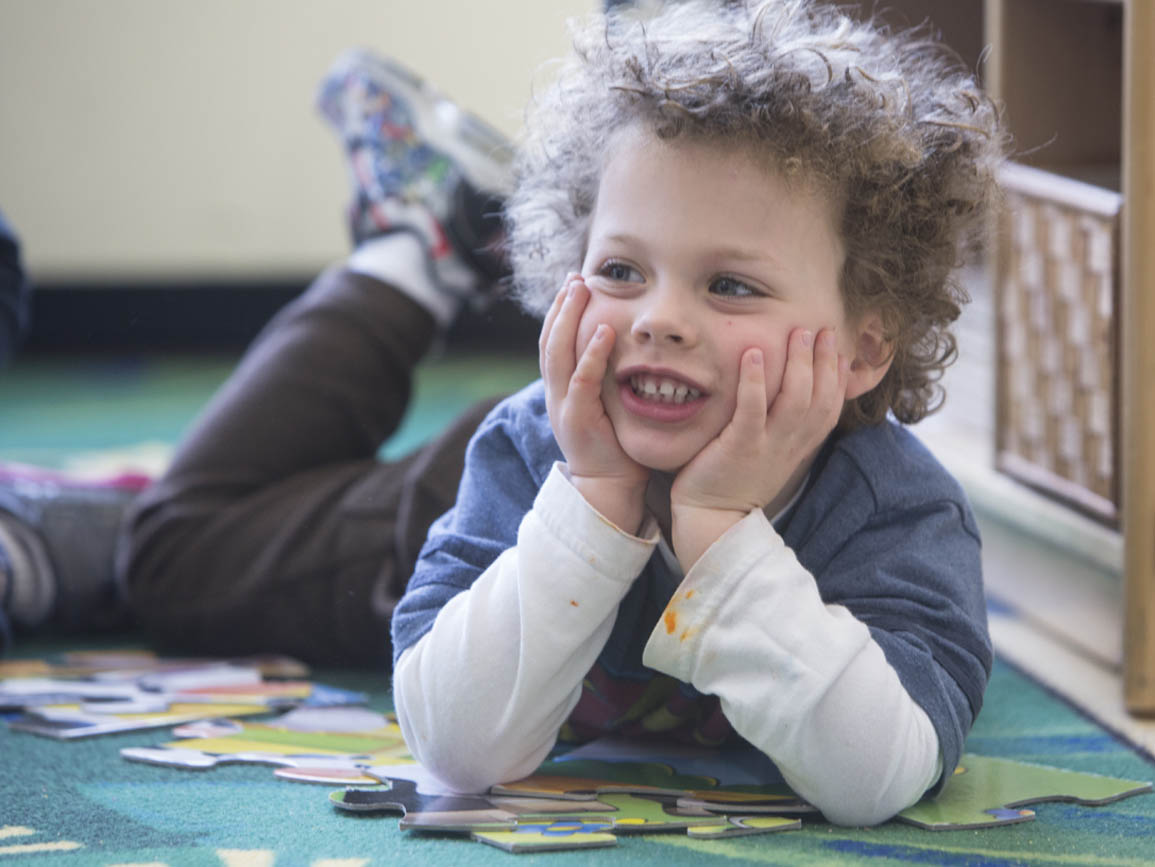How To Get A Child To Admit They Are Lying
Why Do Children Lie? Understanding Child Behavior & How to Respond

There are a number of reasons children lie, from developmental to learned behavior. But one thing is certain; it's often not as intentional as adults think. Learn the common reasons that kids lie and how to respond to lying.
Lying is often ranked as one of the major relationship offenses; we all hate being lied to and we all know we're not supposed to lie. But, as much as we hate to admit it, we all do it in some form or another. And children are some of the biggest offenders. It seems they're born saying, "I didn't do it!"
There are a number of reasons why children lie, from developmental to learned behavior. But one thing is certain; it's often not as intentional as adults think.
Why Do Children Lie?
- Children are concrete thinkers. There are many gray areas on the spectrum of lying, including white-lies to avoid hurting someone's feelings and lies of omission. Of course, there are the "caught with your hand in the cookie jar but still trying to blame it on your brother" type of lies that are obvious, but most lies are less so. Some lies are simply accepted, even encouraged (i.e. inviting the imaginary friend to dinner) and some lies get a big reaction. For children who are concrete thinkers, these nuances make it hard to learn what's okay and what's not okay when it comes to lying.
- Children receive mixed messages. Beyond the fact that children are just learning social norms which are incredibly complicated, the world (including parents) often models a little bending of the truth (i.e. "This is a great gift; one can never have too many socks!"). In fact, many times children get shushed for being too honest (i.e., "My mom said she hates your lasagna."). And television shows and movies very often depict the main characters plotting and scheming and not having many consequences. In fact, a laugh track usually makes the dishonest behavior seem funny rather than inappropriate.
- Children don't understand reality is fixed. Have you ever hoped you could change something just by wishing it so? Children not only hope for this, but they believe it's a possibility. Until about age seven or eight, children often see a blurry line between reality and fantasy and don't know that reality is permanently fixed. They think wishful thinking really works. They believe in super-heroes, unicorns, and their ability to change the facts. So when they say they didn't do it, what they mean is that they wish they didn't do it, and are trying to make that true.
- It's all part of imagination and experimentation. Young children with active imaginations are actually developing their cognitive abilities. But, imaginative or pretend play requires some suspending of the truth. One reason for children lying is because they are engaging in imaginative play when they say or do something less than honest. To make it more complex, one of the important tasks of childhood is to push boundaries, to test the waters, to see what can and can't be done (i.e. "Why can't I fly if I jump from the top of the tree?" and "What will happen if I blame it on the cat?"). Although this can be very frustrating, it helps children learn about the world and themselves, as well as develop important social skills.
Parenting Tips: What Can You Do about Children Lying?
Just because lying is complex doesn't mean you can't or shouldn't address it. How you, and the world, respond to their truth-bending is how children will learn about honesty. Here are a few parenting tips to help you respond to lying, without chiding children for doing what's largely a typical part of growing up.
- Define honesty. Spend time talking about honesty and what it means to help influence child behavior. Point out examples in books, real-life, and in their behavior. If your daughter made a mistake but told the truth, reward your child's truthfulness.
- Differentiate between fantasy and reality. This doesn't mean minimize fantasy; it simply means help children begin to distinguish between fantasy and reality. Around age four or five, children are cognitively able to think this through. You don't have to reveal the real tooth fairy, but when you see a play together or your child spends the afternoon pretending to be a dog, you can use it as an opportunity to talk about what's real, what's not real, and how to tell the difference.
- Find out why. Punishing a child for lying without understanding why he/she did it is ineffective. Depending on your child's age, blurred lines of reality, wishful thinking, experimenting with boundaries or all of the above can be reasons why kids lie. Sending children to their room won't help them understand what went wrong or how to correct their behavior. However, there are effective ways to discipline and teach your children if they are lying. Often natural consequences (i.e. a child tells a friend a lie, the friend is mad and doesn't want to play) and maybe a small discussion are the best and only needed punishment.
- Explain lies. Talk about the times you think it's okay to lie (if at all), such as when you receive a gift you don't like or to make someone feel better. If you lie in front of your children (try hard not to), address the lie and explain your rationale. This includes things like lying about your child's age in order to get a discounted ticket and telling your neighbors you're busy for the block party when you really just stay home and watch a movie. Know that the rationale you provide will serve as a lesson for your children. If you don't want your children to lie for those reasons, you shouldn't either.
- Be a role model. For good and for bad we are our children's role models. If you lie, they will too. If you cheat, they will too. If you tell the truth even when it's difficult, they will too.
- Relax and know that in the long run, it's probably no big deal. In the end, unless children continue to lie repetitively and about significant things past age 12, know that it probably won't become a serious child behavior problem. Continue to teach, model, and reward honest behavior and they'll catch on. A few dogs might eat some homework in the meantime, but children will eventually learn the difference between truth and lies and understand the complicated social rules around them.
Categories in this article:
Topics in this article:
About The Bright Horizons Education Team

Bright Horizons Education Team
Whether you're looking for parenting advice, or trying to figure out how to bring learning from the classroom to the family room, let Bright Horizons early education experts be your trusted, knowledgeable resource. Get our weekly newsletter for all things early child development—from the benefits of pretend play to at-home STEM activities, and teaching kindness—along with encouragement for every stage of your parenting journey.
How To Get A Child To Admit They Are Lying
Source: https://www.brighthorizons.com/family-resources/why-children-lie-and-how-to-respond
Posted by: waferreatim.blogspot.com

0 Response to "How To Get A Child To Admit They Are Lying"
Post a Comment